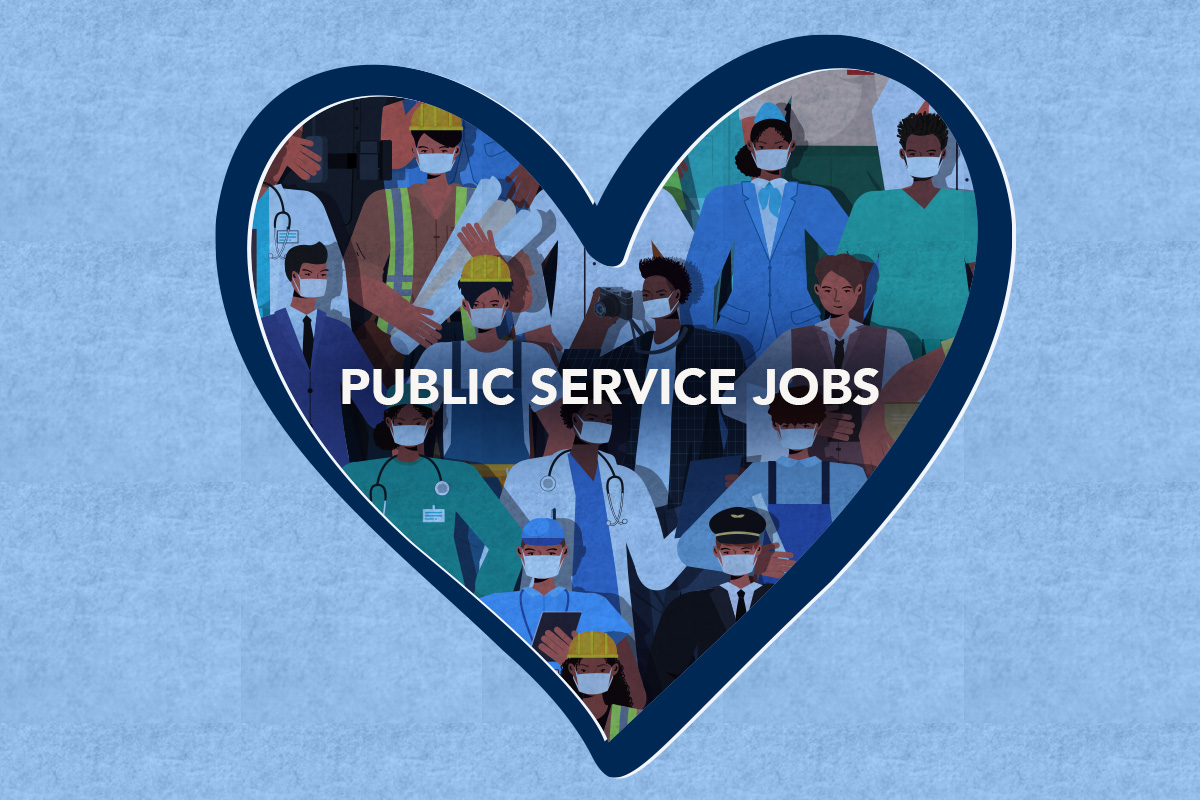Many of us are motivated to do something for the greater good of society through our careers. A government job is one way to fulfill those desires while also providing a valuable and important service to our communities.
So, how do you determine if a government job is the right path for you? In this article, we break down some key benefits and considerations before pursuing a career in public service.
Why Work for the Government?
Dedicating your career to public service – be it at the federal, state or local level – offers you the opportunity to make a true difference. Whether you’re saving people from burning buildings, combating terrorism, responding to natural disasters, or ensuring people get proper emergency medical care, once you accept a job within a public agency, you begin a journey of serving others in your designated role.
Aside from the satisfaction that comes from making a difference and contributing to the greater good, you’ll find numerous other benefits of a government job. These include:
- Competitive Pay: The average government salary is competitive with the private sector. According to the Bureau of Labor Statistics, average salaries in May 2020 were $9,980 higher for state government employees versus the private sector and $1,980 higher for local government employees versus the private sector.
- Strong Benefits: Government employees typically enjoy good health insurance, retirement other perks. In fact, in a 2019 survey of federal government employees, 70% of respondents answered that the ability to receive insurance through the federal program influenced their decision to take their job to a great or moderate extent, and 80% said it influenced their decision to keep their jobs.
- Location Flexibility: Whether you’re applying to work for the federal government or your local area, chances are good that you’ll find positions close to home at multiple levels of government. For example, employees based in Washington D.C. accounted for only 141,367 of the nearly two million total U.S. federal workers in 2017.
- Work-Life Balance: Job seekers looking for a traditional workweek can typically find them in government positions. Some agencies also offer flexible work schedules, telework days, and days off for federal holidays that many private employers don’t offer.
Disadvantages of Working for the Government
While there are numerous advantages to landing a public service job, it’s a good idea to consider all the pros and cons of working for the government, as it’s not for everyone. Some of the disadvantages of working for the government may include:
- Long wait times after applying for a position.
- Dealing with bureaucracy that can delay projects.
- Revolving leadership, especially if working for an agency that places military or political appointees in leadership positions.
Furthermore, while government jobs do offer competitive salaries, at some point you may hit a ceiling and have limited earnings capacity, while the private sector may not have that cap. Additionally, bonuses and raises may be tied to specific pay grades that were previously established, further limiting your income potential.
Conclusion
Government careers are a worthwhile option, but most government jobs do generally require higher education. The BLS reported that occupations requiring postsecondary education made up over 63% of state government and 61% of local government employment.
Here at Columbia Southern University, many of our students and alumni spend their careers in public service. We offer online degree programs in fields like criminal justice, emergency management, EMS, fire science, homeland security, public administration and more.
To learn more about our online degree programs at the associate, bachelor’s, master’s and doctoral levels, visit our website.





